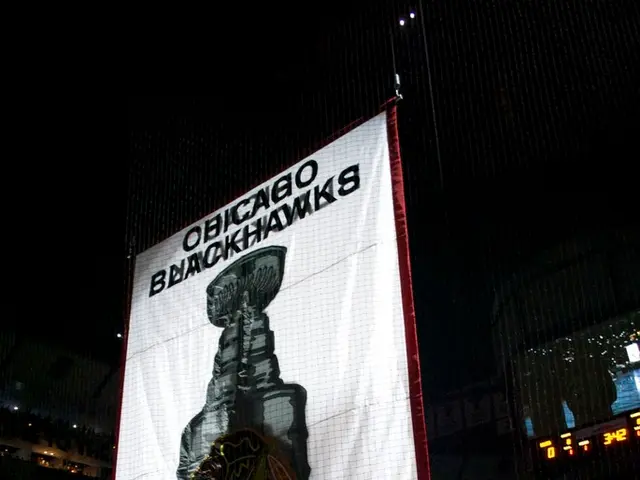America's possible reimposition of sanctions puts Venezuela's oil production and fuel supply at risk.
February 15, 2024 (our website) — The Venezuelan petroleum sector continues to reel under the weight of US economic pressure.
Latest figures from the Organization of Petroleum Exporting Countries (OPEC) reveal Venezuela's January crude output to be 796,000 barrels per day (bpd), as per secondary sources. This figure represents a 14,000 bpd rise compared to the previous month's production.
State oil firm PDVSA reported its own figure of 841,000 bpd—up from 802,000 bpd in December.
Despite production gains, sales figures didn't follow suit, with exports plummeting a reported 25 percent in January, mainly due to power failures at the country's primary loading terminal in eastern Anzoategui state.
Venezuela's lifeblood industry has been a target of US coercive measures since mid-2017. Washington has enforced financial sanctions, an oil embargo, secondary sanctions, barriers galore, all aimed at crushing Caracas' primary source of income.
Crude output fell from around 1.9 million bpd prior to the first sanctions to historic lows below 350,000 in 2020. The sector has since recovered but stopped short of reaching the 1 million bpd target.
In October 2023, the US Treasury Department issued General License 44 (GL44), providing a six-month waiver on dealings with Venezuela's energy sector.
The Biden administration, in response to the Barbados agreement between the Maduro administration and the US-backed opposition, released GL44 and other licenses.
Despite the authorization, the Treasury's Office of Foreign Assets Control warned companies against investing in Venezuela. In the months that followed, several corporations, including France's Maurel & Prom, stepped up their involvement in joint projects with PDVSA, but their activities have limited benefits for the nation's crude production.
Recently, US officials revoked a license authorizing transactions with Venezuela's mining sector and have repeatedly threatened not to renew the oil and gas license when it expires in April. Washington demands that María Corina Machado be allowed to run in this year's presidential elections. The right-wing candidate had her political ban turned down by Venezuela's Supreme Court.
Venezuelan officials, including Oil Minister Pedro Tellechea, have insisted the industry is "prepared" for fresh coercive measures, warning that US markets and supplies would ultimately suffer.
Economist Francisco Rodríguez estimated that the non-renewal of GL44 would deal a blow of $1.6 billion to this year's oil revenues. Rodríguez argued that, even if the waiver expires, the US Treasury's influence over firms purchasing Venezuelan crude through secondary sanctions would be crucial.
Analysts forecasted a sharper output decline should Washington withdraw the license granted to Chevron. The US energy giant ramped up activity in its joint ventures following a November 2022 sanctions waiver and set a 200,000 bpd target for 2024.
A return of broader oil sanctions would halt PDVSA's ongoing attempts to upgrade joint ventures and attract new clients. According to reports, Indian state-owned companies ONGC and Oil India are both keen on deepening their involvement in Venezuela's oil sector. India's multinational refiner Reliance Industries has already purchased Venezuelan crude shipments in recent weeks.
The expiration of GL44 could also mean a resurgence of gasoline shortages. PDVSA has established swap arrangements with partners like Chevron, Maurel & Prom, Spain's Repsol, and Italy's Eni to boost supplies of fuel and diluents for refineries.
Venezuela is attempting to revamp its refining industry with aid from Iran in recent years. Nevertheless, refineries remain bogged down by operational disruptions and unable to match demand. Scarcity of gasoline and particularly diesel has serious impacts on electricity generation, public transportation, and agriculture.
In March 2023, Venezuelan authorities revealed a corruption scheme that cost the industry billions from unaccounted oil sales and resulted in dozens of arrests.
The US sanctions regimen on Venezuela's oil sector has intensified significantly in 2025, with recent measures causing immediate disruptions despite Caracas' efforts to stabilize production. Key developments include:
Sanctions Timeline and Measures
- March 24, 2025: The Trump administration issued GL 41B, extending the wind-down period for US companies until May 27, 2025, and introduced secondary tariffs on countries purchasing Venezuelan oil effective April 2.
- April 2025: A 25% tariff was imposed on Venezuelan crude buyers, paired with revoked licenses for companies like Chevron, leading to a 20% export drop (to 700,000 bpd in April).
- Geopolitical Fallout: China increased imports while India's Reliance Industries was given until May 27 to phase out purchases. PDVSA now relies on discounted sales and intermediary networks to bypass restrictions.
Immediate Impacts
- Export Slump: Chevron's shipments to the US plummeted 69% to 66,000 bpd in April. Global oil prices, including Venezuela's Merey blend, dropped by 3.9-5.9% due to market turbulence.
- Operational Havoc: Increasing numbers of tankers conceal their routes, facing revenue losses from enforced discounts and unreliable intermediaries.
Long-Term Implications
- WTO Legal Action: Venezuela plans to launch a complaint against the US tariff regime at the World Trade Organization.
- Economic Turmoil: With oil accounting for over 90% of export earnings, prolonged sanctions might exacerbate Venezuela's economic crisis, despite claims of production stabilization.
- Despite the rollercoaster of production figures and various licenses issued, the US continues to exert pressure on Venezuela's oil industry, forcing secondary tariffs and revoking licenses, leading to a sharper export decline, such as the 20% drop experienced in April 2025.
- As a result of these sanctions, Venezuelan oil giant PDVSA has been compelled to sell discounted crude and work with intermediary networks to circumvent US restrictions, impacting its international partnerships, like the ones with India's ONGC and Oil India.
- The revocation of the General License 44 and escalating US sanctions have set the stage for potential gasoline shortages in Venezuela, aggravating scarcity issues in sectors like electricity generation, public transportation, and agriculture, in addition to the ongoing corruption schemes revealed by authorities in March 2023.







